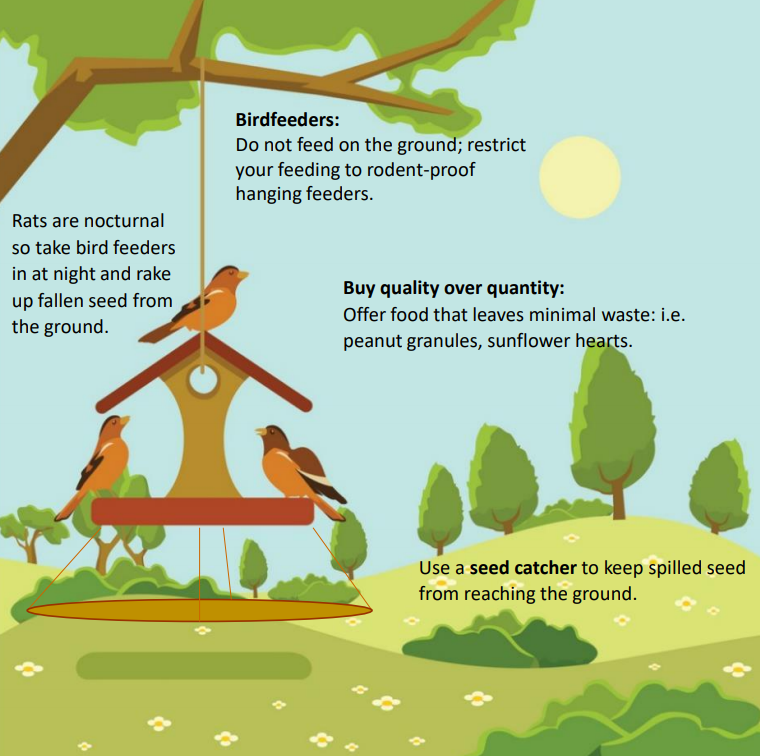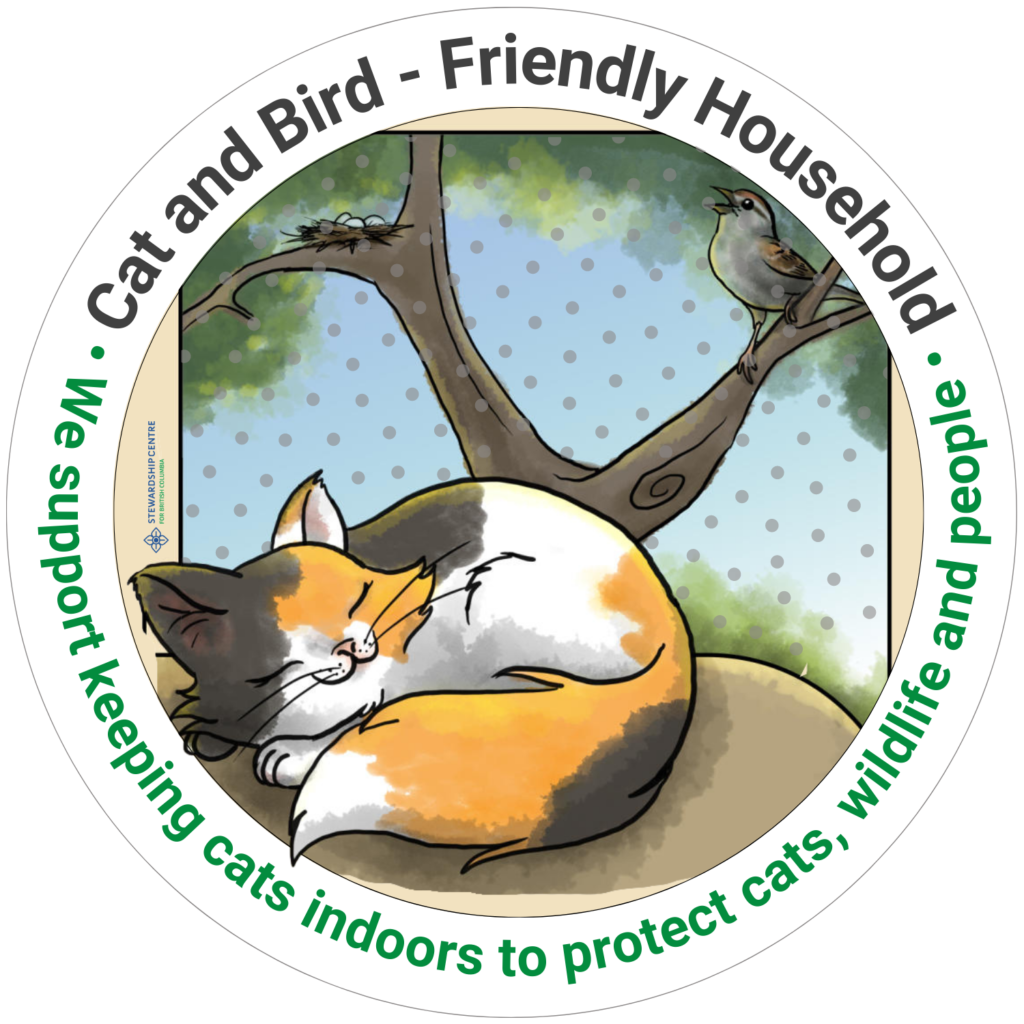Cats and Birds | Bird Feeding
Keep your bird station clean
Bird feeders attract a high number of bird species, thus, providing a perfect opportunity for bacterial and disease transfer between individuals. To avoid the spread of infections, feeders must be regularly maintained and sanitized.

- Clean your feeding station regularly (at least every 2 weeks)
- Refill and clean hummingbird feeders every 2-5 days
- Make sure the area below your feeder is clean of food waste and droppings
Bird feeder hygiene
- All feeders should be cleaned, and seeds refilled every 2 weeks to avoid mould or fungal growth. During high activity at the feeder, mild or wet weather, it needs to be cleaned more often.
- Hummingbird feeders must be washed every 2-5 days to prevent mould growth in sugary water. Learn more on the BC SPCA website.
- Keep seeds dry in a covered container away from humid areas. Store seed containers inside or under overhanging cover to avoid rain or snowmelt spoiling your seeds.

How to clean bird feeders
- The best way to clean feeders is to soak and scrub them with the 10% bleach solution
- Remove any debris stuck to the feeder and rinse it thoroughly with fresh water after cleaning
- Remember to dry it completely before filling it with seeds.
- Learn more…
Notice food waste and droppings around your feeder?
Seed waste and bird droppings are not only the source of bacteria that can be spread between animals but also a ground food source that attracts rodents, which in turn may promote the use of harmful rodenticides among your neighbours.
- Use feeders with a seed-catcher to clean droppings and food waste efficiently
- Bring in feeders at night if you notice evidence of rodents visiting your feeder
- Move feeder periodically to avoid an accumulation of waste
- Rake the ground to clean fallen seeds
- Check your feeder to ensure it is free of damage. Small cracks and loose parts of the feeder might cause excessive food waste. Fix or replace damaged feeders to avoid seed loss and accumulation of food on the ground
Check out the best practices for controlling rodents in urban and agricultural environments.
To learn more about ways you can help birds, visit our Cats and Birds – Helping Birds page.





